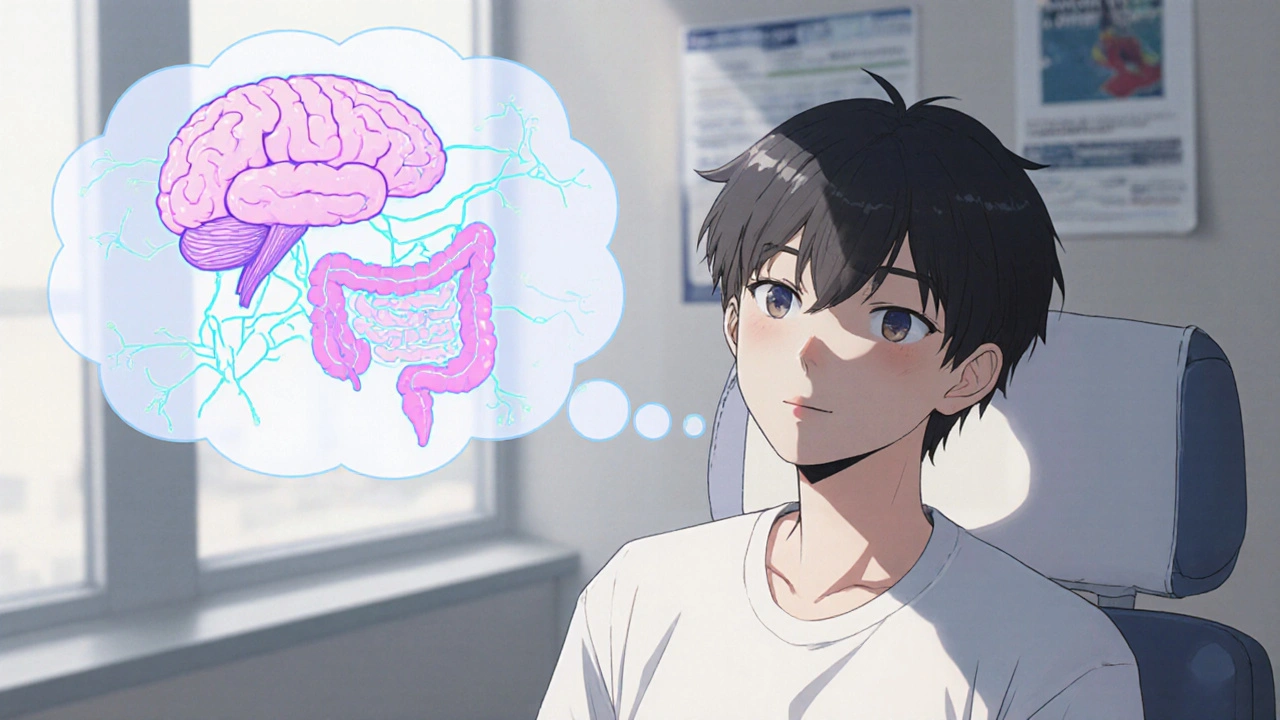
Explore how dosulepin, a tricyclic antidepressant, may help relieve IBS symptoms, review clinical evidence, compare it to other TCAs, and learn safety tips.
When you’re prescribed dosulepin, a tricyclic antidepressant used to treat depression and sometimes chronic pain. Also known as dothiepin, it works by balancing brain chemicals like serotonin and norepinephrine. But like all medications, it doesn’t come without trade-offs. Many people take dosulepin without issues, but others face side effects that can be mild, annoying, or sometimes serious enough to stop treatment.
Common side effects include dry mouth, constipation, drowsiness, and blurred vision. These aren’t rare—they happen in up to 1 in 5 people. If you’ve ever felt like your mouth is full of cotton wool after taking it, you’re not alone. Drowsiness is another big one. Some people take it at night because it helps them sleep, but if you’re still groggy in the morning, it might be too much. Weight gain is also common, especially over time. And don’t ignore dizziness when standing up—it’s a sign your blood pressure dropped too fast. This is called orthostatic hypotension, and it’s why doctors tell you to get up slowly.
Less common but more serious side effects include heart rhythm changes, confusion, seizures, or severe allergic reactions. These are rare, but if you feel your heart racing, get chest pain, or notice sudden mood swings or suicidal thoughts, call your doctor right away. Older adults are more sensitive to these risks, especially if they’re taking other meds for blood pressure or heart conditions. And if you’re on any other antidepressants, painkillers, or even over-the-counter sleep aids, you could be at risk for dangerous interactions. Always tell your doctor what else you’re taking—even herbal supplements.
What’s missing from most patient leaflets? How long these side effects last. For many, dry mouth and drowsiness fade after a few weeks as the body adjusts. But for others, they stick around. That’s when you need to talk to your doctor—not just power through. Sometimes switching to a different antidepressant is better than suffering silently. And if you’re thinking about stopping dosulepin cold turkey, don’t. Withdrawal can cause nausea, headaches, and even rebound anxiety. Tapering off slowly under medical supervision makes all the difference.
You’ll find real stories here—from people who managed the side effects with simple lifestyle tweaks, to those who had to switch meds entirely. We’ve gathered posts that break down how dosulepin compares to other tricyclics, what to do if you can’t tolerate it, and how to spot warning signs before they become emergencies. This isn’t just a list of symptoms. It’s a practical guide for people who want to take control without guessing.

Explore how dosulepin, a tricyclic antidepressant, may help relieve IBS symptoms, review clinical evidence, compare it to other TCAs, and learn safety tips.